How the transition to electric transportation impacts manufacturing companies

At the moment, when the transportation industry was reaching a steady point of maturity, the idea of electric powered transportation arrived and shook up the entire industry. The electrification of transportation affects many functions within manufacturing companies, both in terms of developing technologies and the speed at which they are developed. Companies must now be constantly adapting to this now ever-evolving industry whether it be in the engineering, manufacturing operation or procurement process. In order to navigate these changes with ease, it is critical that companies develop a strategy, to understand the speed of product evolution and how it impacts one’s factory and supply chain.
Product evolution in electrification
The development possibilities for electric vehicles are new and endless! Systems found in combustion engine vehicles, such as heating, air conditioning, and power steering, can no longer rely on engine power to operate; they will have to be reinvented, to be self-sufficient, and rely on electrical power to perform their tasks. These types of reinventions will have a direct impact on the engineering, assembly, and maintenance of these vehicles.
By introducing heavy batteries, the industry is having to rethink the weight distribution and fabrication for transit and recreational vehicle as weight reduction becomes even more important. These factors mean that developing electric vehicles will involve using new platforms, which will require considerable time and investment.
With a rapid increase in technology and digital connectivity in the maintenance and manufacturing of electric vehicles having electrical, electronic and software skills at all levels of a company is a valuable asset.
Impact on manufacturing strategies
New systems and technologies mean major changes in manufacturing operations, assembly sequence and production equipment. Manufacturing strategies, therefore, must be adapted to consider these issues.
As this is a new and fast-moving market, companies need to develop agile, modular, and scalable manufacturing operations that can adjust to market trends, new customer demands and product developments. This requires continuous training and new approaches to evolve quickly as well as new parameters to established quality control in the factories.
Procurement and supply chain
As new technologies are embedded into products, many changes will follow with integrating new configuration into an assembly line, companies may not always be able to master this quickly. Therefore, they need to adjust their approach, thereby relying on a network of suppliers to gain access to the required expertise.
This also means, that subcontractors will have to innovate and reinvent themselves to develop new components that are compatible with eclectic motorisation. Finally, the electric and intelligent transport (EIT) sector will necessarily need to have a strong, qualified, versatile, and innovative workforce to continue to grow and maintain success. New key skillset, therefore, need to be developed, particularly in the areas of electrical, mechanical systems, mechatronics, embedded systems, and connectivity.
Changes is occurring to adapt to the new reality of electric transportation. If your company needs support in implementing an effective manufacturing strategy or to evolve your products, contact the experts at Merkur!
Join us on September 23rd for our presentation on how the electrification of transportation impacts the manufacturing industry at the Impulsion MTL event.
About our Businesses
MERKUR was founded in 1994 as an engineering consulting firm working for manufacturing companies inside and outside of Quebec. At Merkur we are known for our in-depth offers and our knowledge of small, medium, and large manufacturing companies. Here at Merkur we are proud contributors of innovation and productivity in Quebec, for over the past 25 years!
KHROME PRODUCT TRANSPORT is an integrated manufacturing company located in Drummondville Quebec, specializing in the design and manufacturing of interior and exterior train cars. Its strength lies in its strong engineering capacity and manufacturing agility. Among its main clients are Alstom, Bombardier Transportation and Kawasaki Rail Car.
SYNKRO is a software solution developed by Merkur and designed specifically for high-performance manufacturers. It collects, classifies, and distributes the right data to the right people at the right time. Synkro gives you real insight into your operations. Synkro is the software solution that finally connects your floor and your office!
Continue reading on this subject

The challenges of designing a 40-tonne, 100% electric mining vehicle for open-pit mines
Partnerships and implications The partners involved in the development of a 100% electric Quebec mining vehicle were all eager to be involved with the project from the outset, for a variety of reasons. NRC’s Eddy Zuppel explained their contribution: “Before starting the project, it was important to model and simulate the vehicle’s route in order […]
Read more
Energy efficiency: Financial support to put your ideas into action
Leading a company involves balancing several priorities at the same time. Energy efficiency? It’s an important issue—one of many! What if we gave you what you need to make energy efficiency a driving force behind your company’s performance and profitability? The good news is, Hydro-Québec offers financial assistance and guidance to help you balance performance and energy efficiency.
Read more
My Consumption Profile: data that lets you strategically manage your electricity use
Companies have a critical role to play in the energy transition. Knowing that energy efficiency factors big into profitability, your organization will benefit from strategically managing its electricity use. The key? Your data!
Read more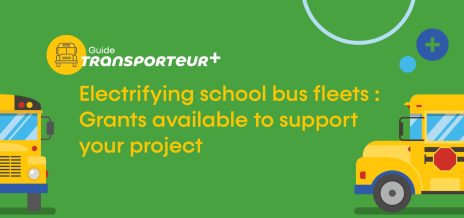
Electrifying school bus fleets : Grants available to support your project
In this series of articles, we demystify the key steps of converting your school bus fleet to electric power thanks to the Transporteur+ guide. This guide aims to provide easy and direct access to resources to clarify the steps, issues, conditions and facilitating measures for a successful transition to electrification.
Read more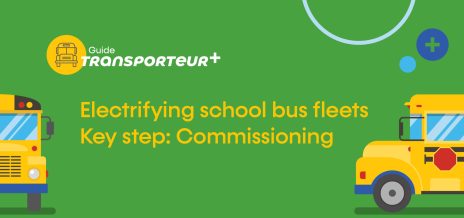
Electrifying school bus fleets | Key step : Comissioning
In this series of articles, we demystify the key steps of converting your school bus fleet to electric power thanks to the Transporteur+ guide. This guide aims to provide easy and direct access to resources to clarify the steps, issues, conditions and facilitating measures for a successful transition to electrification.
Read more
FINANCING | $50 million from Finalta Capital in non-dilutive financing dedicated to the Electric and Smart Transportation sector
Fast growing, innovative companies from the electric and smart transportation (EST) sector in Québec take advantage of the $50 million in funding dedicated to the EST ecosystem by Finalta Capital, one of Canada’s largest funds specialized in non-dilutive tax credit and government grant financing, announced in March 2023 as part of the Impulsion conference, the International EST Summit organized by Propulsion Québec.
Read more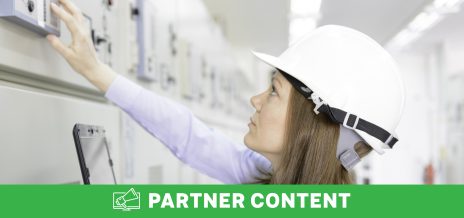
Demand response: Save money by using hydro at the right times
If you could lower your company's hydro bill while contributing to the collective effort to support Quebec’s energy transition, would you? Yes, most likely! How? By curbing power demand for buildings and equipment during peak demand events.
Read more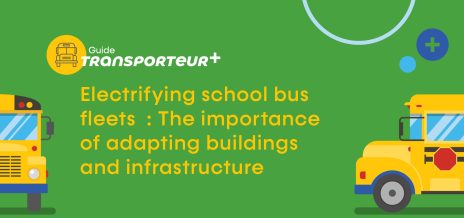
Electrifying school bus fleets : The importance of adapting buildings and infrastructure
In this series of articles, we demystify the key steps of converting your school bus fleet to electric power thanks to the Transporteur+ guide. This guide aims to provide easy and direct access to resources to clarify the steps, issues, conditions and facilitating measures for a successful transition to electrification.
Read more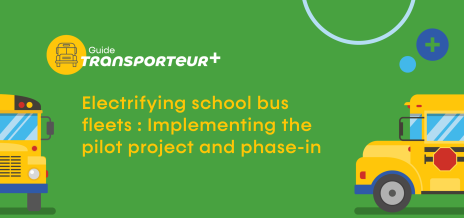
Electrifying school bus fleets : Implementing the pilot project and phase-in
In this series of articles, we demystify the key steps of converting your school bus fleet to electric power thanks to the Transporteur+ guide. This guide aims to provide easy and direct access to resources to clarify the steps, issues, conditions and facilitating measures for a successful transition to electrification
Read more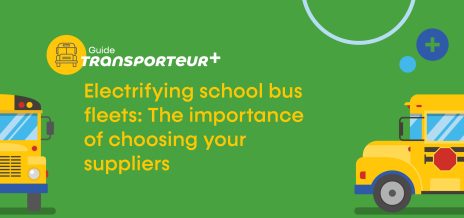
Electrifying school bus fleets: The importance of choosing your suppliers
In this series of articles, we demystify the key steps of converting your school bus fleet to electric power thanks to the Transporteur+ guide. This guide aims to provide easy and direct access to resources to clarify the steps, issues, conditions and facilitating measures for a successful transition to electrification.
Read more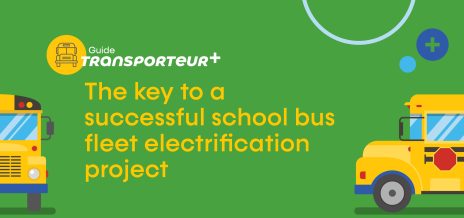
The key to a successful school bus fleet electrification project
In this series of articles, we demystify the key steps of converting your school bus fleet to electric power thanks to the Transporteur+ guide. This guide aims to provide easy and direct access to resources to clarify the steps, issues, conditions and facilitating measures for a successful transition to electrification.
Read more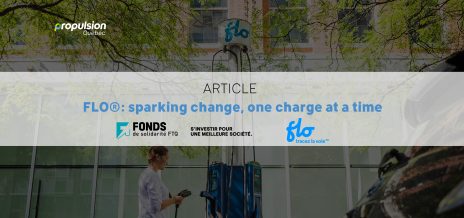
FLO®: sparking change, one charge at a time
FLO became a leader in electric vehicle (EV) charging in North America by integrating the process from start to finish: manufacturing charging stations, developing software and managing its network. To stay ahead of the curve in a fast-moving, innovation-driven market, the company turned to the Fonds de solidarité FTQ to support its growth.
Read more




